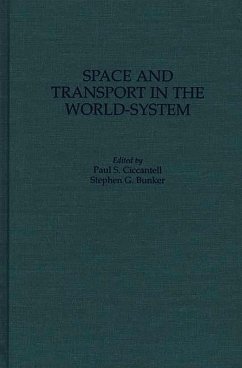Key metaphors in world-system analysis are profoundly spatial, but there have been few attempts to understand how space, location, and topography affect world-system organization and process. To fill this gap, this book examines case studies of the restructuring of space and transport in core, semiperipheral, and peripheral economies. It addresses such topics as the role of ocean transport in linking terrestrially based units of the capitalist world economy, the role of land transport systems in the construction and restructuring of relationships between raw materials peripheries and core economies, and the role of the airplane in transforming and representing changing spatial, economic, and social relations in the capitalist world economy.
World-systems theory and many other perspectives on the world economy, including international political economy and analysis of globalization, typically pay only limited attention to issues of space, location, and the role of transportation in the world economy. This book identifies key theoretical and empirical issues and provides the basis for formulating research strategies to address this gap in our understanding.
World-systems theory and many other perspectives on the world economy, including international political economy and analysis of globalization, typically pay only limited attention to issues of space, location, and the role of transportation in the world economy. This book identifies key theoretical and empirical issues and provides the basis for formulating research strategies to address this gap in our understanding.

